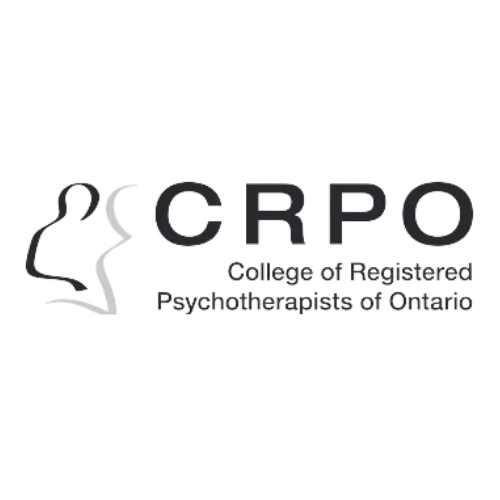Mental Health Resources
If you are in a life-threatening crisis call 9-1-1 immediately
Canadian Suicide Hotline # 9-8-8
Disclaimer: This content and material presented is for educational, communicational, and/or informational purposes only. This content should not be used for diagnosis or treatment of any condition or disease. Any case histories presented are provided for illustrative purposes only. No express or implied guarantee of results is made via these videos or resources. If you are currently being treated by a physician or other healthcare practitioner for any condition or disease, please consult with that provider prior to changing or modifying any medication treatment program.
The Container
In this episode of The Mental Health Show, Robert Grigore introduces a powerful visualization technique known as The Container, which is used in EMDR therapy and other therapeutic practices. This technique helps individuals manage distressing thoughts, feelings, and memories by compartmentalizing them into a mental ‘Container’ for safekeeping. The episode guides listeners through the process of creating their own Container, ensuring it is secure and comfortable, and demonstrates how to use it effectively to cope with stress and emotional disturbances. Robert emphasizes the importance of practicing this technique and encourages feedback from listeners on their experiences.
Takeaways
- The Container technique is a visualization tool for managing distress.
- It’s essential to create a secure and comfortable Container.
- The Container should not be something seen daily to avoid reminders.
- You can modify your Container as needed over time.
- Using the Container helps compartmentalize distressing thoughts.
- It’s important to focus on one issue at a time using the Container.
- The Container is not about ignoring problems but managing them effectively.
- Practicing the Container technique can empower individuals to cope better.
- Physical movement can enhance the effectiveness of the
- Container technique.
Feedback from users can help improve the technique’s application.
Calm Place
In this episode of The Mental Health Show, Robert Grigore discusses the importance of having coping strategies for managing anxiety and stress. He introduces the ‘Calm Place’ technique, a visualization method designed to help individuals find peace and relaxation in their minds. The episode explores how to effectively use this technique, its benefits, and practical applications in daily life. Robert emphasizes the significance of self-care and emotional regulation, encouraging listeners to integrate these strategies into their routines for better mental health.
Takeaways
- It’s important to have coping strategies for life situations.
- The Calm Place technique helps regulate the nervous system.
- Visualization can be a powerful tool for relaxation.
- Recent memories are more effective for the Calm Place technique.
- The technique can be adapted for non-visual individuals.
- Practicing the Calm Place can enhance emotional resilience.
- The Calm Place can be used in various daily situations.
- Self-care is essential for mental well-being.
- Feedback from users helps improve mental health content.
- Everyone is worthy of love and support.
Polyvagal Theory, Dissociation, & Isometric Grounding
In this conversation, Robert Grigore MCP, RCC discusses the concept of dissociation, its connection to the Polyvagal Theory, and various grounding techniques to manage dissociation. He shares personal experiences and insights from his clinical practice, emphasizing the importance of understanding dissociation in mental health.
Takeaways
- Dissociation is a vital response to overwhelming stress.
- The Polyvagal Theory explains our nervous system’s responses.
- Grounding techniques can help manage dissociation effectively.
- Dissociation can manifest in various ways, from mild to severe.
- Personal experiences can provide valuable insights into dissociation.
- Understanding the nervous system can aid in mental health treatment.
- Social engagement is crucial for grounding oneself.
- Grounding techniques can include physical exercises and mindfulness.
- Dissociation is a survival mechanism rooted in our biology.
- EMDR therapy can be beneficial for those experiencing dissociation.
7-11 Breathing
In this episode, Robert Grigore MCP, RCC introduces the concept of trauma-informed therapy and shares a practical breathing technique known as 7-11 breathing. He explains the importance of proper breathing in managing anxiety and discusses the neuroscience behind how breathing patterns can affect our nervous system. The episode includes a guided breathing exercise to help listeners experience the benefits of this technique.
Takeaways
- Everything I do is trauma informed and very useful.
- Not everything works for everybody; find what suits you.
- 7-11 breathing is easy to remember and practice.
- Inhale for seven seconds, exhale for eleven seconds.
- Box breathing may replicate trauma for some individuals.
- Exhaling completely helps calm the nervous system.
- Anxiety often leads to short, shallow breaths.
- Calming the nervous system activates the parasympathetic response.
- Breathing patterns can shift focus from anxiety.
- Practice makes a significant difference in your state.
3 Mind Blowingly Easy Ventral Vagal Breathing Techniques to Reduce Anxiety and Stress
In this video, Robert Grigore MCP, RCC, Certified EMDR Therapist & Consultant demonstrates 3 Mind Blowingly Easy Ventral Vagal Breathing Techniques to Reduce Anxiety and Stress.
1. Diaphragmatic Breathing
2. Eye Rolls
3. Tongue Decompressions
Try these techniques to stimulate your Vagus Nerve and promote a reduction in anxiety and stress!
Want more?
Go to Unlock the Power of Your Vagus Nerve: 5 Simple Strategies For Anxiety Relief & Deep Relaxation.
Disclaimer: This content and material presented is for educational, communicational, and/or informational purposes only. This content should not be used for diagnosis or treatment of any condition or disease. Any case histories presented are provided for illustrative purposes only. No express or implied guarantee of results is made via this video. If you are currently being treated by a physician or other healthcare practitioner for any condition or disease, please consult with that provider prior to changing or modifying any medication treatment program.
54321 Grounding
In this episode of the Mental Health Show, Robert Grigore MCP, RCC discusses the importance of grounding techniques in mental health, particularly focusing on the 5-4-3-2-1 grounding method. He explains how grounding can help individuals who experience dissociation and anxiety, providing a practical guide to implementing this technique in daily life. The conversation emphasizes the significance of being present and recognizing one’s feelings, while also destigmatizing mental health issues.
Takeaways
- Grounding techniques are vital for managing anxiety and stress.
- Dissociation is a common response to overwhelming stress.
- The 5-4-3-2-1 technique helps individuals reconnect with the present.
- Grounding can be practiced anywhere, anytime.
- Recognizing your surroundings can help reduce anxiety.
- It’s important to acknowledge your feelings and experiences.
- Everyone has experienced some form of trauma in their lives.
- Mental health awareness is crucial for personal well-being.
- You are valuable and worthy just by being present.
4 Elements Grounding
In this episode of the Mental Health Show, Robert Grigore introduces grounding techniques, specifically the Four Elements Grounding Technique. He explains the importance of grounding in mental health, particularly for those experiencing anxiety or dissociation. The technique involves connecting with the earth, focusing on breath, hydrating, and recognizing one’s life force through movement and positive affirmations. Robert encourages viewers to practice these techniques and share their experiences.
Takeaways
- Grounding helps individuals feel present and connected.
- The Four Elements Grounding Technique includes earth, wind, water, and fire.
- Feeling grounded can alleviate feelings of anxiety and dissociation.
- Breathing techniques, like 7-11 breathing, are essential for grounding.
- Hydration is important for mental clarity and presence.
- Physical sensations, like feeling the ground, enhance grounding.
- Positive affirmations can reinforce feelings of safety and presence.
- Engaging with the environment can help in grounding practices.
- Practicing grounding techniques can improve emotional regulation.
- Sharing grounding techniques can benefit others in need.
Mathematics Grounding
In this video, Robert Grigore MCP, RCC shares techniques to manage strong emotions through grounding. Learn how to use the Back of Head Scale, and simple mathematics for anxiety relief and dissociation!
Special thanks to Jim Knipe (Back of Head Scale)
"Karate Chop" Grounding
This video features Robert Grigore MCP, RCC, a Registered Clinical Counsellor and EMDRIA-Certified EMDR therapist and EMDRIA-Approved EMDR Consultant, introducing the “Karate Chop” method for immediate grounding. On The Mental Health Show With Robert Grigore, he explains EMDR therapy and offers many different techniques. In this video he demonstrates the Karate Chop hand movement and discusses dissociation, relaxation, and focus as part of the EMDR preparation process.
SET Boundaries Like a PRO with CONFRONTED Method
Robert Grigore MCP, RCC discusses the importance of setting and enforcing boundaries in relationships.
He introduces the ‘CONFRONTED Method’, a 10-step process designed to help individuals confront loved ones about behaviors that need to change.
The discussion covers the significance of understanding Basic Personal Rights, the difference between limits and boundaries, and the steps involved in effective confrontation.
Grigore emphasizes the need for consent, clear communication, and the importance of evaluating and enforcing boundaries to maintain healthy relationships.
Takeaways
💡 Setting boundaries can be overwhelming for many individuals.
💡 The ‘Confronted Method’ is a structured approach to confrontation.
💡 Understanding personal rights is crucial for effective communication.
💡 There is a significant difference between limits and boundaries.
💡 Consent is essential before initiating a difficult conversation.
💡 Factual observations are key to effective confrontation.
💡 Feelings should be expressed as personal experiences, not accusations.
💡 Not addressing behaviors can lead to relationship deterioration.
💡 Clear, practical, and tangible means better understanding in relationships.
💡 Enforcing boundaries is necessary for maintaining personal integrity.

Low-Barrier Community Resources & Supports
This is a list of low-cost and low-barrier mental health community supports and services. Please note the list is curated a few times per year and is offered out of the kindness and generosity of our community partners. If you are aware of additional resources that you would like on the list, please contact us. Thank you!






